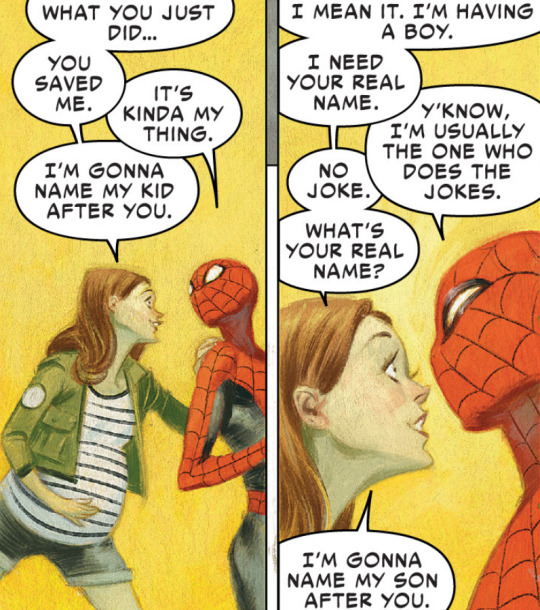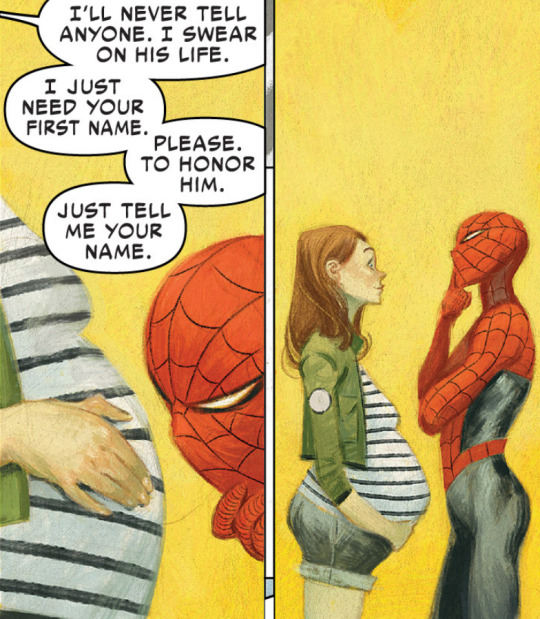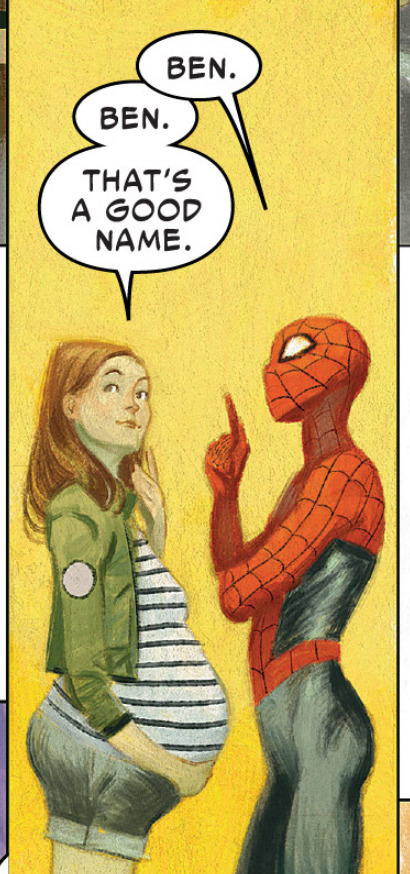Text
One thing that bothers me about the ending of the Lilo and Stitch remake (among the other things people have already rightfully complained about) is how it acts like Nani has to go to college NOW or she's lost her chance forever.
As someone who was raised by a young mother that didn't get to go to college, because she got 2 kids at 18-20, but then went to college in her early/mid 30s when me and my sister were old enough to be left home alone, it just feels really insulting.
It really adds to the harmful mindset that someone's life, especially that of women, is over if they haven't "got their life together" yet before the age of 25.
There would've been no harm in Nani delaying college for like 5-10 years, instead of abandoning her sister during the most vital years of her development only 2-3 months after already having lost her parents. Animated Nani would never.

8K notes
·
View notes
Text

My question to everyone defending the end of the live-action Lilo and Stitch.
8K notes
·
View notes
Text
In a normal circumstance, I hate Netflix. However, they struck a deal to produce new episodes of Sesame Street and will ensure that the episodes remain free and accessible on PBS for all kids and for that, they deserve gratitude.
Additionally, unlike the deal previous struck with HBO, this one with Netflix also makes its so new episodes are simultaneously available via Netflix, PBS, and the PBS Kids app.
Please continue to support Sesame Street and all the other PBS programming via donations to ensure everyone, kids and adults alike, continue to have access to educational viewing.
22K notes
·
View notes
Text
Fuck it, I didn't want to make a post on this but it's bugging the hell out of me so let's exorcize the thought.
Lilo and Stitch is an extremely good children's movie. I've been working at a daycare for over five years now, and out of all the children's movies I've shown to an auidence of twenty or so school-age kids (i.e. between the ages of 5 and 12), the only movie that's held their attention as well as Lilo and Stitch is The Emperor's New Groove, and the only one that's held it better is An American Tail. Of those three, Lilo and Stitch has won the vote of "what movie we will watch" the most. It not only entertains kids, but emotionally captivates them from start to finish, because it very thoroughly understands how to engage children on their level. It's a smart, tightly written children's movie.
The feat of story-telling genius it pulls of lies in its ability to reach both where children's imaginations want to go and where their lived real-world experiences lie - most children's movies focus on one or the other, but Lilo and Stitch dives deep into both. On the imagination side, there's Stitch's whole plotline of being a little alien monster being chased by other weirdo aliens onto earth because they want to stop him from running amok and causing havoc (which, of course, happens anyway in fun cartoony comedy/action spectacle). On the real-world side, you have Lilo's plotline of being a troubled little girl who has an abundance of very real problems that, like an actual child, she struggles to comprehend and deal with, as well as the many adults in her life that care about her to some degree but all struggle to fully understand her. Kids want to be Stitch and run amok and cause cartoony havoc. Kids, even the least-troubled kids, relate to Lilo, because all of them have been in a similar situation as her at least once in their lives.
Balancing these two very different stories, with very different tones and scopes to their respective conflicts, is a hard writing task, but Lilo and Stitch manages to do it in a way that seems effortless with one very powerful trick. The two plots are direct mirrors to each other, complete with the characters involved in each having foils in the respective plot. To break it down:
Stitch, the wild and destructive alien gremlin who everyone has labeled as a crime against existence, is Lilo, the troubled young girl who's viewed as a "problem child" by all the adults in her life. In both plotlines, Stitch and Lilo are facing the threat of being "taken away" from the life they know because they act out, and in both plotlines, we see that this is an unfathomably cruel thing to do to them and will not actually solve the problems they have.
Dr. Jumbaa, the mad scientist who made Stitch because making monsters is what mad scientists do, and who had no intentions of ever being nurturing or parental to anything or anyone in his life, is Nani, Lilo's older sister whose parents died when she was young and now is forced to act as a parental substitute despite not being mentally or emotionally prepared for that responsibility yet. Both Dr. Jumbaa and Nani are trying to get their respective wild children in line with what society wants them to be, and both are struggling hard with it because they in turn have a lot of growing to do before they can actually accomplish that.
Pleakley, the nebbish alien bureaucrat who ends up being assigned to help Dr. Jumbaa despite being mostly uninvolved in creating the whole Stitch situation, is David, the nice but mostly ineffectual guy who's crushing on Nani and wants to help her but doesn't really have much he can provide except emotional support. Ultimately Pleakley and David prove that said emotional support is a lot more helpful than it seems on the surface, as they give Jumbaa and Nani respectively a lot of the pushes they need to become better in their parental roles.
The Grand Councilwoman, who runs the society of aliens that is trying to banish Stitch forever for his crime of existing, is Cobra Bubbles, the Child Protective Services agent who is in charge of deciding whether or not Lilo needs to be taken away from her home forever for, ostensibly, her own good. Both are well-intentioned and stern, with a desire to follow the rules of society and do what procedure says is the most humane thing to do in this situation, but both lack the understanding of Stitch/Lilo's situation to actually help until the end of the movie.
Finally, we have Captain Gantu, the enforcer of the Galactic Council who is a mean, aggressive, sadistic brute but is viewed as a "good guy" by society because he plays by its rules (well, when he knows can't get away with breaking them, anyway), who is the counterpart of Myrtle, the mean, aggressive, sadistic schoolyard bully who is viewed as a "good kid" by other adults because she plays by the rules they established (well, when she knows she can't get away with breaking them, anyway). Both Gantu and Myrtle are, in truth, much nastier in temperament than Stitch and Lilo, but are better at hiding it in front of others and so get away with it, and often make Stitch and Lilo look worse in the eyes of others by provoking them to violence and then playing the victim about it - in fact, both even have the same line, "Does this look infected to you?", which they say after goading their respective wild-child victims into biting them.
The symmetry of these two plotlines allows them to actually feed into each other and build each other up instead of fighting each other for screentime. The fantastical nature of Stitch's plot adds whimsy to the far more realistic problems that Lilo faces so they don't get too heavy for the children in the audience, while the very real struggles of Lilo in her plotline bleed over into Stitch's plot and make both very emotionally poignant. When both plotlines hit their shared climax, they reach children on a emotional level few other movies can match - the terror of Lilo being taken away from her family, and the emotional complexity of that problem (Cobra Bubbles pointing to Lilo's ruined house and shouting at Nani, "IS THIS WHAT LILO NEEDS?" is so starkly real and heart-breaking), is matched and echoed in the visual splendor and mania of the spectacular no-way-this-is-going-to-work chase scene where Stitch, Nani, Jumbaa, and Pleakley all team up to rescue Lilo from Gantu.
The arcs of the characters all more or less line up. Nani confronts her own failures to be a guardian and parent to Lilo and resolves to do better and learn from her mistakes. Jumbaa, who through most of the movie protests to be evil and uncaring, nonetheless comes to not only care for Pleakley, but more importantly for Stitch too, and ends up assuming the role he never wanted but nonetheless forced himself into from the start: he is Stitch's family. Hell, the moment that reveals this is really clever - Stitch goes out into the wilderness to try and re-enact a scene from a storybook of The Ugly Duckling, hoping, in a very childish way, that his family will show up and love him. Jumbaa arrives and, coldly but not particularly cruelly, tells Stitch that he has no family - that Stitch wasn't born, but created in a lab by Jumbaa himself. But in that moment Jumbaa is proving himself wrong - because Stitch's creator, his parent, DID show up, and did exactly what happens in the story by telling Stitch the truth of what he is. It can't be a surprise, then, that later in the movie Jumbaa ends up deciding to side with Stitch, to help him save Lilo, and to stay on Earth with his child.
David and Pleakley go from being pushed away by Nani and Jumbaa respectively to essentially becoming their partners in the family. The Grand Councilwoman and Cobra Bubbles finally see how cruel their initial solution of isolating Stitch and Lilo from their family would be, and bend the rules they are supposed to enforce to protect and support this weird found family instead of breaking it apart. Gantu and Myrtle are recognized for the assholes they are and face comeuppance in the form of comedic slapstick pratfalls. And most importantly, Stitch and Lilo both get the emotional support and understanding they need to thrive and live happy lives as children should be allowed to do. It's like poetry, it rhymes.
It's a very precise, smartly written movie. It's a delicate balancing act of tone and emotions, with a very strong theme about the need for family and understanding that hits children in their hearts and imaginations. It's extremely well structured.
...
So it'd be kind of colossally fucking stupid to remake it and start fucking around with the core structure of it, chopping out pieces and completely altering others, with no real purpose beyond "Well, the executives thought it might be better if we did this."
30K notes
·
View notes
Text
2002 Lilo & Stitch: Ohana means family!
2025 Lilo & Stitch: Ohana means leave an indigenous child who is neurodivergent to the state, even though historically that always led to erasure of culture and forced family separation. abuse, death or worse – 'somehow lost'! But make it girlboss so there's a noble reason behind it! While we are at it, let's have our main character walk around a resort and enjoy its services so that we can promote our Hawaiian resort even though the original theme of the movie is anti-tourism and Lilo takes pictures of the tourists as a form of retaliation for them using her, her land and her culture as a prop!
4K notes
·
View notes
Text
I'm surprisingly aroused
behold. Smiley Villy







context below
we are opening dtiys if you draw smiley villy and tag us in your post we will reblog it and shower it with praise



16 notes
·
View notes
Text
Rewatching all the Meet The Mercs videos and analyzing them, I just realised how crazy strategic Scout is. He's even more intelligent then Spy in that manner.
In Meet The Scout, it opens with Scout analyzing the play field. He looks at where each opponent are, instantly draws out the weakness, and who, where, and how he'll go about this battle.
He first sees Sniper aiming somewhere else, then Spy, with Engineer running behind him, to the sentry that Engineer caught up with, and finally focuses in on Pyro and Soldier.
Instantly, INSTANTLY, he runs in, dodging all the turrets bullets and (who or what got the train moving, I don't know) but he lures Soldier and Pyro in front of it, killing them, before moving onto Spy and Sniper.
My man just 1v1'd almost the entirety of the BLU team.
And yet I still don't get why people think he's clueless or oblivious to stuff. Dudes obviously INCREDIBLY clever. He's just not book smart.
398 notes
·
View notes
Text
i want devices that are functional and hardy and i want them to last and fuck the rest of the shit i dont need. my ds and 3ds can lie in sleep mode for months if not years and i can pop them open and they've still got two or three bars left. my old phones in high school could go days without a charge. if i leave my nintendo switch on the floor for a few days doing absolutely fuck all nothing i will turn it on and it will cry to me mother i am dying. i am dying mother. and i tell him he'll never be half the man his brother was and he can't hear me because he's dead
30K notes
·
View notes
Text
153K notes
·
View notes
Text
I feel like looking into the anime out of spite now tbh
I am spoiling the live action Lilo & Stitch. And I am doing it up front and plainly.
Do not fucking see this movie. Do not waste your money on this. Period.
They made Nani give Lilo up to the American government. They made Nani LEAVE Hawaii and pursue being a marine biologist. They made a native Hawaiian character give up her sibling to pursue a dream that she originally did not have. This is imperialist propaganda at its FINEST.
The original fucking movie is about family staying together. It's about indigenous people being able to stay with each other and stay in their home and be together! That's the whole fucking point! Nani is Lilo's last living relative on her homeland—it is jarring, it is disgusting and disturbing that Nani would not only leave her last blood relative alone, give her up to the very government that is harming native Hawaiians TODAY, but also travel to the "mainland" for her dream!
Not to mention, Nani's actress isn't fucking Hawaiian. She's much paler in photos and real life. They fucking darkened her for this movie.
Don't even get me started on the transgender subtext of Pleakley's "human" disguise from the original movie being completely erased in favor of him being played by a regular ass white man. Jumba doesn't have his accent, they made him more villainous, and his "human" disguise is a non-fat white man—which part of his original joke, I know, is that he was bigger and was more clumsy in the movie because of his size, but to have the main shape of his character completely removed is also fucking weird.
This live action movie is a desecration to the original. I encourage you to not see it, please. Don't give Disney any of your money on this one. Just watch the original. Please just watch the original.
The new message in the live action movie is disturbing and gross.
This is one of the most disrespectful live actions I've seen and heard of. I implore you to not watch it.
71K notes
·
View notes













